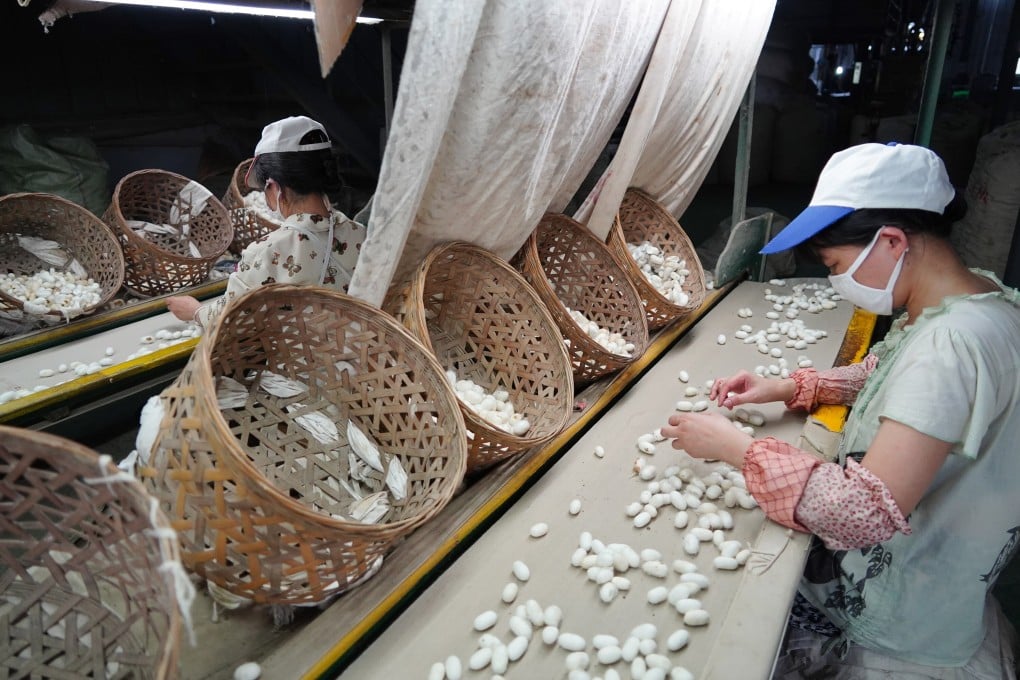Scientists in China, US develop rewritable ‘silk drive’ that can be implanted in human body
- The silk protein memory, capable of storing digital information as well as biological data, has a capacity of 64 GB per square inch and can operate under harsh conditions
- The information stored in the silk hard drive remained ‘safe and sound’ even after 30 minutes of exposure to high level microwave radiation

Scientists in China and the US have developed a novel storage medium made from silk proteins, an implantable material on which information can be written to, read from and erased.
The silk protein memory, capable of storing digital information as well as biological data such as blood biomarkers, has a capacity of 64 GB per square inch and can operate under harsh conditions including bacterial contamination, high humidity, high magnetic fields and clinical-level gamma radiation.
The research work was a collaboration between scholars from Chinese Academy of Sciences (CAS), the University of Texas at Austin, and Stony Brook University.
Infrared light is used to etch information onto the silk, with nano probes used for focusing the light beams, according to the study.
“The biological compatibility of the silk drive is good and can be implanted into living organisms, such as the human body, which can be preserved for a long time or even forever,” Tiger Tao Hu from CAS’ Shanghai Institute of Microsystem and Information Technology, was quoted as saying by state-backed media The Global Times.
The information stored in the silk hard drive remained “safe and sound” even after 30 minutes of exposure to high level microwave radiation, according to Tao.